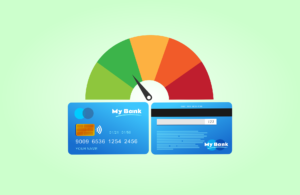Maintaining a good credit score has become a new way of adulting. In a world where people have started to buy even mobile phones on EMI, the importance of a good Credit Score cannot and should not be under-estimated. Before we talk about why this score is important, and how we can maintain it, let us start with the basics.

What is Credit Score?
Credit Score is a numerical representation of the creditworthiness of a consumer. This figure is arrived at after considering all information such as the previous loans, current borrowings, and payment history of the consumer. It basically is the first impression the lender has of the borrower, whereby the lender gets an idea of how likely the consumer or borrower is to pay back the loan along with timely interests. On the basis of risk assessment and after considering the credit score, the lender decides whether or not a loan shall be granted, and at what rate of interest. The higher the score is, the better is the trustworthiness of the consumer.
Credit Score in India
In India, the most popular is The TransUnion CIBIL Limited (formerly known as The Credit Information Bureau (India) Limited. Other Credit Information companies licensed by RBI are Equifax, Experian and CRIF High mark.
CIBIL score being the most popular, is a 3 digit numerical representation ranging between 300 and 900. Ideally, any Bank or NBFC would prefer an applicant with CIBIL score above 750, however, a score ranging between 700 and 749 is a good score too. A CIBIL score between 650 and 699 is considered fair. CIBIL score between 600 and 649 would make it a little difficult for the consumer to get a loan, and any score below 600 is very poor and creates a bad impression on the lender.

The greatest advantages of maintaining a good Credit Score are
· High Probability of loan approval – An individual with a good credit score has higher probability or chances of getting a loan approved. Whenever someone approaches a Bank or NBFC for a loan, the diligence team checks the Credit Score of the applicant to understand the repayment history and current borrowings of the applicant.
· Attractive Rate of Interest – Not only does a good credit score make loan approvals easier, it also helps the applicant to get a loan without a high cost of borrowing. Banks and NBFCs engage in the business of granting loans, and a good credit score equates to regular periodic payment and timely repayment of the loan. The chances of Credit Risk associated with a good score is considered to be lower. This creates an ideal situation for both the lender and the borrower.

It is never too late to start. If you think your credit score is low and not up to the mark, or not as good as you would want it to be, there are some important changes you can bring about to improve the situation. Some steps you can consider to undertake are – pay your credit cards dues on time, avoid opting for loan settlement, don’t take multiple loans at a single time, make regular EMI payments of existing loans.
Remember, don’t bite off more than you can chew. Taking a huge loan or a loan which has high cost of borrowing without proper provision or understanding will never be a good decision. Some important things to consider – Don’t take a loan just because it is pre-approved, if the purpose is not well defined, if you think you won’t be able to repay it back on time, or if you plan to spend it on lifestyle.
Many individuals who are unable to repay the loan back apply for OTS ( One Time Settlement) . Please understand, this should be the last option. Settling of a loan results in the worst hit to your Credit Score. Instead, try to meet your lender and propose restructuring as a measure.
Be responsible with your finances.